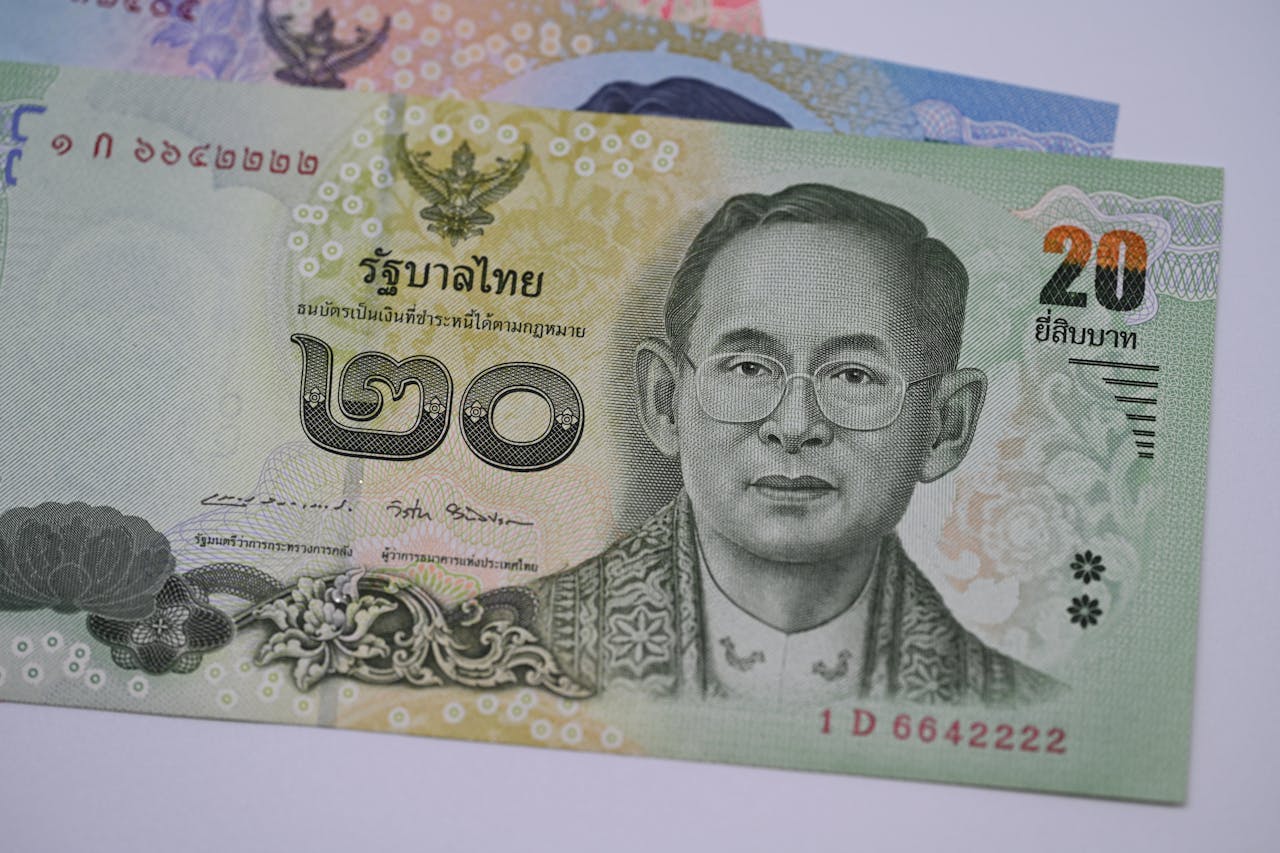Table of Contents
ToggleThailand, Southeast Asia’s second-largest economy, boasts a GDP of approximately $514 billion and continues to grow steadily. With low unemployment and rising earnings, Thailand is an attractive destination for businesses. Companies setting up operations in Thailand must understand the payroll policies and labour laws to ensure compliance and operational efficiency.
Managing Thailand payroll can be complex, especially for foreign businesses navigating the country’s intricate employment laws, tax obligations, and mandatory contributions. From monthly salary payments and social security deductions to annual tax filings and compliance with ever-evolving labour regulations, payroll in Thailand requires careful planning and local expertise. Whether you’re a startup expanding into Southeast Asia or a multinational company hiring Thai employees for the first time, understanding the full scope of payroll requirements is essential to avoiding costly mistakes. In this comprehensive guide, we break down everything you need to know about Thailand payroll—helping you stay compliant, efficient, and ready for growth.
Read our Thailand country guide
1. Setting Up Payroll in Thailand
Legal Entity & Business Registration
- To run payroll, you must first establish a legal entity in Thailand.
- Foreign ownership over 49% must comply with the Foreign Business Act.
- Non-resident companies may outsource payroll or use a Professional Employer Organisation (PEO) or Employer of Record (EOR) to remain compliant.
Step-by-Step Thailand Payroll Setup
- Register Employees: Register employees with the Social Security Office within 30 days of hire.
- Document Collection: Collect contracts, ID proofs, provident fund forms, etc.
- Corporate Tax Compliance: Pay 20% corporate income tax (with exceptions for small businesses).
- VAT Registration: Businesses earning over 1.8 million THB annually must register for VAT (current rate: 7%).
- Other Taxes: Include petroleum income tax and withholding tax where applicable.
Thailand Payroll Cycle and Contributions
Thailand Payroll Cycle
- Cycle: Monthly (usually paid on the last working day)
- 13th Month Salary: Not mandatory
Employer Contributions
| Contribution | Rate | Income Cap |
| Pension | 3.00% | 1,650 – 17,500 THB |
| Health Insurance | 1.50% | 1,650 – 17,500 THB |
| Unemployment | 0.50% | 1,650 – 17,500 THB |
| Work Injury | 0.2% – 1.0% | Up to 20,000 THB |
| Total | 5.20% – 6.00% |
Employee Contributions
| Contribution | Rate | Income Cap |
| Pension | 3.00% | 1,650 – 17,500 THB |
| Health Insurance | 1.50% | 1,650 – 17,500 THB |
| Unemployment | 0.50% | 1,650 – 17,500 THB |
| Total | 5.00% |
Thailand Salary & Taxation
Minimum Wage
| Region | Daily Wage |
| Narathiwat, Pattani & Yala | 328 THB |
| Phuket & Chonburi | 354 THB |
Minimum Salary for Foreign Nationals
| Region | Minimum Monthly Salary |
| USA, Canada, Japan | 60,000 THB |
| Europe, Australia | 50,000 THB |
| ASEAN & Middle East | 25,000–45,000 THB |
Income Tax Rates
| Income (THB) | Tax Rate |
| 0 – 150,000 | Exempt |
| 150,001 – 300,000 | 5% |
| 300,001 – 500,000 | 10% |
| 500,001 – 750,000 | 15% |
| 750,001 – 1,000,000 | 20% |
| 1,000,001 – 2,000,000 | 25% |
| 2,000,001 – 5,000,000 | 30% |
| 5,000,000+ | 35% |
Working Hours & Overtime
- Standard: 8 hours/day, 48 hours/week
- Breaks: Minimum 1-hour break after 5 consecutive hours
- Overtime:
- 150% on weekdays
- 200% for holidays (regular hours)
- 300% for overtime on holidays

Leave Entitlements
Annual Leave
- Minimum 6 days after 1 year of service
- Prorated for employees with <1 year of service
Public Holidays (2025)
- 13 statutory holidays
- Some moved if they fall on weekends
- Additional region-specific holidays observed
Other Leave Types
- Sick Leave: Up to 30 paid days/year
- Maternity Leave: 98 days (45 days paid at 100%, remainder at 50%)
- Paternity Leave: 15 days (public sector only)
- Military Leave: Paid, up to 60 days/year
- Business Leave: 3 days/year
- Training Leave: Permitted for skill development
Termination & Severance
Notice Period
- Minimum 30 days (can be longer by contract)
- Payment in lieu of notice is allowed
Severance Pay
| Service Length | Severance |
| <120 days | None |
| 120 days – 1 year | 30 days’ salary |
| 1 – 3 years | 90 days |
| 3 – 6 years | 180 days |
| 6 – 10 years | 240 days |
| 10 – 20 years | 300 days |
| 20+ years | 400 days |
Note: No severance is required if termination is for cause.
Thailand Payroll Options
| Option | Description |
| Remote | Add Thai staff to parent payroll. Must manage local compliance. |
| Internal | Build an in-house HR/payroll team. Best for large companies. |
| Local Payroll Processor | Partner with Thai payroll firms. Retain compliance responsibility. |
| Outsourcing | Fully delegate payroll and compliance. Fast and compliant setup. |
Immigration Requirements
- Short-Term Work (≤15 days): Urgent Work Permit (UWP), extendable once
- Long-Term Work: Work Permit required (1–4 years)
- All foreign workers need a Non-Immigrant B visa before entering Thailand
Stay Compliant
Staying compliant with Thailand payroll obligations requires ongoing attention to multiple deadlines and regulatory updates. Businesses must ensure that monthly payroll tax returns are submitted accurately and on time. This includes remitting contributions for social security, provident funds (if applicable), and other statutory deductions according to the applicable schedules. In addition to tax and fund remittances, it’s crucial to monitor changes in labour legislation, particularly amendments related to wages, working hours, and employee benefits. Employment contracts and internal HR policies should be reviewed and updated regularly to align with the latest legal standards. Compliance is not a one-time effort—it demands vigilance and proactive management.
Read more: 5 Common Payroll Myths That Are Hurting Your Global Expansion Efforts
Final Tips
To effectively manage payroll in Thailand, businesses should maintain clear, legally sound employment contracts that clearly define roles, salary structures, benefits, and termination procedures. All compensation-related matters—including bonuses, leave entitlements, and severance payments—should be properly documented and traceable. Staying informed on public holidays, tax reforms, and wage announcements ensures smoother payroll cycles and avoids last-minute surprises. For companies new to the Thai market—or simply seeking peace of mind—partnering with an Employer of Record (EOR) like Eos Global Expansion can be the smartest move. Our local expertise and regulatory insight help you reduce risk, stay compliant, and focus on growth while we handle the complexities of Thai payroll administration.
Contact Eos Global Expansion today to optimise your payroll operations in Indonesia. Check our services here or book a free consultation now.
Photo by Q L






